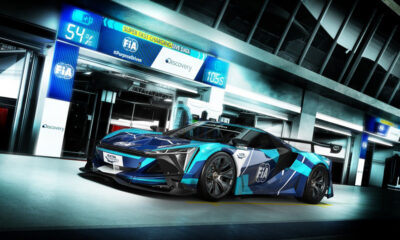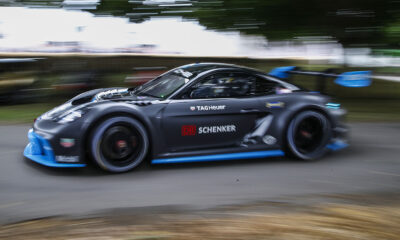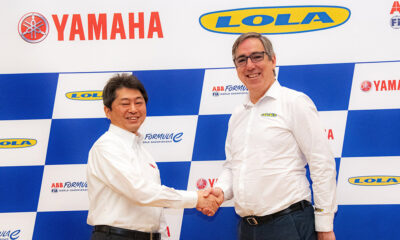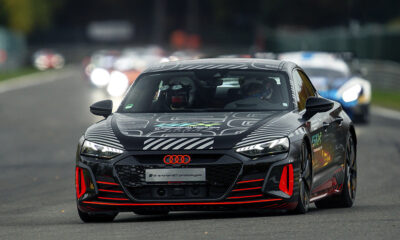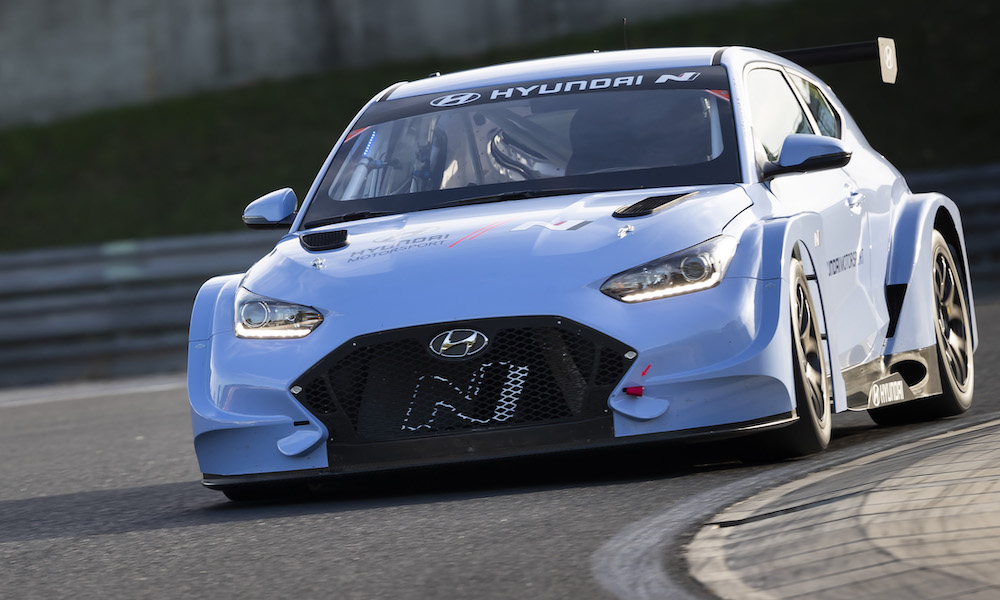
Hyundai Motorsport ETCR
20-22 September 2019
Photographer: Austral
Worldwide copyright: Hyundai Motorsport GmbH
ETCR’s technical director says the electric touring cars won’t have any problems with overheating when they hit the track later this year, despite persistent rumours throughout the development stage.
Multiple sources indicated to e-racing365 in recent months that the powerful rear-wheel-drive cars are liable to overheating after initial problems with the common kit’s durability.
The platform’s technical boss Gergely Bari says a number of updates have been made throughout the development process to avoid such issues, including the switch from Rimac Automobili to Williams Advanced Engineering battery packs.
Williams Advanced Engineering was confirmed as ETCR’s sole supplier of batteries and vehicle control modules last year, although Croatian hypercar manufacturer Rimac was involved at an earlier stage through a technical partnership with Cupra.
Bari confirmed that Rimac is no longer involved in ETCR, and hinted that the new Williams units have been implemented to resolve issues found with the previous product.
“The WAE battery pack is technically different from the Rimac that was initially mounted on the first prototypes,” he told e-racing365.
“As it happens in all stages of a development, we have updated several technical aspects by optimizing the principles of the ETCR concept.
“All of this happened on a professional level by consulting all stakeholders. We are confident we won’t have overheating issues, any format we choose.”
‘Behind Closed Doors’ Testing Scheduled for May, June
The first manufacturer group tests between different ETCR cars are scheduled to take place in May and June ahead of the first event in July, but behind closed doors.
Cupra, Hyundai and Alfa Romeo constructor Romeo Ferraris are expected to take to the track together for the first time in these tests, and they could be joined by recent addition of Shanghai Lisheng Racing’s program, of which details remain thin.
However, these tests won’t be open to the public, and it’s unclear how much information will be shared from them.
A WSC Group spokesperson told e-racing365 that the locations and exact dates of the tests won’t be revealed, because they will take place in private.
Bari says the tests will be used to finalize the development process.
“The key areas of the development have been finalized already,” he said. “We are currently testing the integration of the platform elements in a laboratory environment.
“After that, once the integrated kit is assembled in the car, the official tests will be used to define the various racing setups and create familiarity of the teams with the software management of the car.”


















